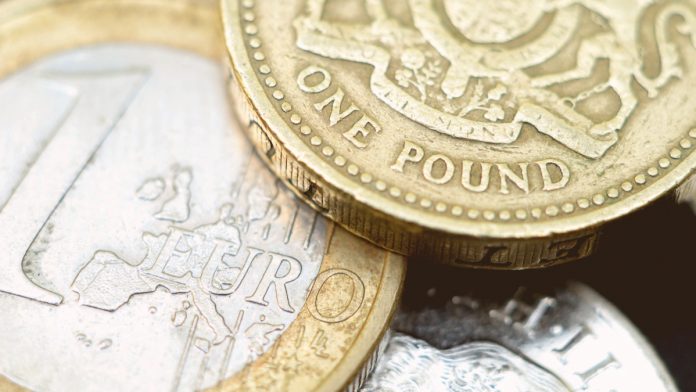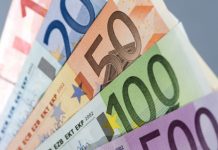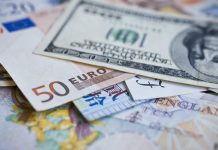- Pound (GBP) looks to GDP data
- BoE’s Bailey hinted at a gradual approach to hiking rates
- Euro (EUR) falls after German inflation falls
- Eurozone unemployment, German retail sales due
The Pound Euro (GBP/EUR) exchange rate is holding steady after gains in the previous session. The pair gained +0.28% on Wednesday, settling at €1.1611, after trading in a range between €1.1543 – €1.1627. At 05:45 UTC, GBP/EUR trades +0.02% at €1.1614.
The pound rose versus the euro but fell versus the USD in the previous session after the three central bankers, Bailey, Powell and Lagarde took to the stage yesterday at the ECB summit in Portugal.
Bank of England Governor Andrew Bailey sounded cautious in his speech, noting that the UK economy was displaying clear signs that it was slowing. He said, “We are being hit by a very large income shock”. His rhetoric suggested that the BoE would opt for a gradual pace to hike interest rates.
Looking ahead today the focus is on UK economic growth. UK GDP for the first quarter is expected to confirm a 0.8%. This is the third reading so may not be that market moving. Given that the outlook for the UK economy has deteriorated so much since the first quarter, even if there was an upward revision it is unlikely.
The euro fell in the previous session as German inflation unexpectedly declined and as eurozone economic sentiment also fell.
German inflation cooled to 8.2% year on year in June, down from 8.7% in May, reflecting measures by the government to dampen high fuel prices. Analysts had expected inflation to rise to 8.8% in June.
Energy prices were the biggest contributor to annual inflation, rising 38% annually, approximately the same as the previous month.
Meanwhile, economic sentiment in the euro area fell in June, to 104 down from 105. This was, however, slightly better than the 103 forecast.
Looking ahead there is plenty of data today to keep investors engaged, including German retail sales, and eurozone unemployment. German retail sales are expected to recover in May, rising 0.8% after tanking -5.4% in April. Strong sales could help lift the euro.





